We are a leading manufacturer of automatic flour milling plants, automatic wheat flour mills, flour mill, and automatic flour mills from China - PINGLE
---Advanced flour mills, good quality
--- Capacity 50-200TPD
--- Final product flour and grits
-- Certificate ISO BV CE
---Professional skills,all-related services
---High-quality and efficient flour mill technology
---Complete flour mill production line, quick delivery
---20 years of experience in flour mill industry
---Best flour mill solution for wheat and maize processing system
---The biggest flour mill plant manufacturer and exporter in China
---Exporting to more than 40 countries with a presence worldwide
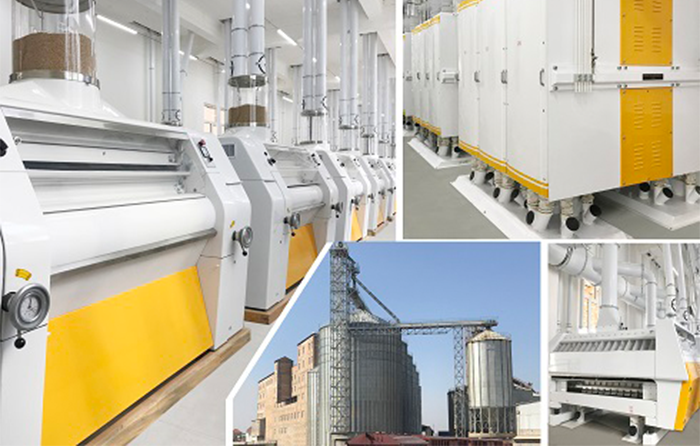
Many people aspire to start their own flour milling business but often worry about capital and flour mill technology. The small flour mill machinery we offer can help some of them solve this problem. To produce high-quality wheat flour and effectively reduce the cost of setting up a flour mill, rice flour or maize/corn meal, flour mills will use advanced flour milling equipment and systematic procedures to manufacture flour.
PINGLE is a comprehensive company specializing in manufacturing grain and oil processing equipment. We supply flour milling machines and flour mills with exquisite technology and reasonable prices, which have won unanimous recognition from our users. Our flour mill machinery is compact, easy to operate, and maintain, with short setup time and low noise, while we provide prompt after-sales service, coupled with high output, good quality and low power consumption to ensure its good performance.
Send a quote now for detailed information on project cost, process design and equipment layout!
Unlock the potential of your flour milling business with PINGLE’s advanced and efficient flour mill machinery. Are you dreaming of setting up your own flour milling business but daunted by the high capital and complex technology? PINGLE, a leading manufacturer of automatic flour milling plants and automatic wheat flour mills from China, is here to turn your dreams into reality. Our compact and easy-to-operate machinery not only reduces the setup time but also operates at low noise levels. With our machinery, producing high-quality wheat flour, rice flour, or maize/corn meal becomes a hassle-free process. Our prompt after-sales service, coupled with high output, good quality, and low power consumption, ensures the best performance of our machinery. Step into the future of flour milling with PINGLE.
In the world of essential foods, flour is a basic ingredient, making flour mills very important. These flour mills turn grain into flour using modern machines to make sure the flour is clean and safe according to strict health rules.
PINGLE stands out in this industry for its top-notch flour milling machines. PINGLE offers various machines that do a great job of cleaning, grinding, and sorting different grains like wheat, corn, and rice. Choosing PINGLE for your flour mill means you're getting the latest technology that not only works well but is also good for the environment because it reduces waste and saves energy. Whether it’s for bakeries, the food industry, or making the process of turning grain into flour better at home, PINGLE machines produce excellent quality flour. Let PINGLE guide you in making a good decision for your flour-making needs, leading you to outstanding success. Choose PINGLE's milling machines for when you want the best in quality and innovation
Understanding the importance of the milling process is the first step in conducting flour business, which not only affects the quality of flour but also the stability of the foundation of the flour business. In this process, good flour equipment plays a decisive role. High-quality equipment can not only improve grinding efficiency and reduce energy consumption but also ensure the uniformity and cleanliness of flour, which directly affects the development of flour business. PINGLE flour equipment, with its excellent performance and reliable quality, provides customers with high-quality grinding solutions. Choosing PINGLE is not only about choosing a set of equipment, but also about choosing a better milling experience and a more profitable flour business. Collaborate with PINGLE to develop a more profitable flour business.
1. Cleaning
The first step in flour processing is cleaning. This process can remove foreign objects from grains to ensure high-quality final products. Grains undergo thorough inspection and classification to remove stones, dirt, and other unwanted particles.
Cleaning equipment types: vibrating screen, magnetic separator, and air extractor,
Use these devices to achieve optimal cleanliness of grains. By eliminating impurities, the cleaning stage can ensure that the produced flour is safe to consume and free from any potential pollutants.
2. Grinding
After tempering and conditioning, grains enter the milling stage of the milling process. Grinding involves breaking grains into smaller particles, called flour, and further refining them to produce flour.
Grinding equipment types: electric drum grinding machine, pneumatic drum grinding machine
Modern drum mills are equipped with advanced technology that can precisely control the grinding process, thereby producing consistent and uniform grinding powder. This ensures that the produced flour has the required particle size and characteristics to meet the specific requirements of different end users, such as bakers, noodle manufacturers, and food manufacturers.
3. Separation
After grinding, the next step in the flour processing process is separation. This stage involves separating various components of grains, endosperm, bran granules, and germ.
4. Milling
After the separation of grain components, the next stage of flour processing is grinding. Grinding involves further grinding and refining the endosperm to produce fine flour particles.
5. Mixing and packaging
The final step in flour processing is mixing. Mixing involves mixing different flour and other ingredients together to create a customized mixture that meets specific requirements. This stage allows the flour mill to produce various types of flour with different characteristics, such as protein content, gluten strength, and color.
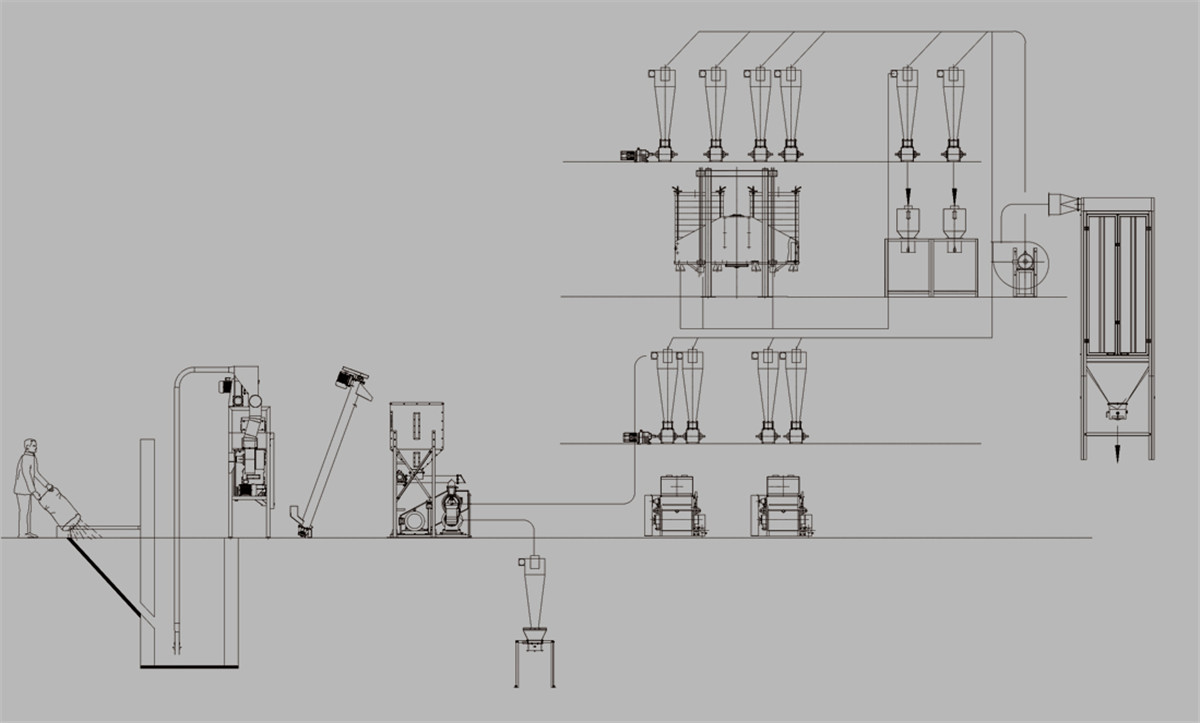
Understanding the layout design of flour equipment is crucial for the operational efficiency and product quality of the entire flour factory. A compact flour mill distribution design not only effectively utilizes limited space to achieve smooth and efficient production processes, but also significantly reduces energy consumption and operating costs, thereby improving production efficiency and economic benefits. PINGLE flour equipment, with its optimized layout design and efficient production performance, provides customers with a reasonable layout, energy-saving and efficient flour processing solution. Choosing PINGLE means you will have a well-designed and efficient flour mill, which will help you achieve your flour production goals more smoothly. Here is the distribution map of PINGLE's 30TPD flour factory. You can contact us to explain your desired production requirements, and we will assist you in designing the flow mill plant layout
| Model | Power (kw) | Power consumptionper ton flour(kw/h) | Capacity(ton wheat of 24hrs) | Dimension(LxWxHm) |
| 60TPD Steel Structure Flour Milling Machine | 60 | 40x10x12 | ||
| 100TPD Steel Structure Flour Milling Machine | 340 | 70-75 | 100 | 35x10x12.5 |
| 120TPD Steel Structure Flour Milling Machine | 420 | 70-75 | 120 | 43x10x12.5 |
| 140TPD Steel Structure Flour Milling Machine | 530 | 68-73 | 140 | 47x10x12.5 |
| 160TPD Steel Structure Flour Milling Machine | 597 | 68-73 | 160 | 49x10x12.5 |
| 200TPD Steel Structure Flour Milling Machine | 704 | 65-72 | 200 | 54x12x13.5 |
| 220TPD Steel Structure Flour Milling Machine | 820 | 65-72 | 220 | 57x12x13.5 |
| 120TPD Multi Storey Flour Milling Machine | 470 | 70-74 | 120 | 40x7.5x19 |
| 140TPD Multi Storey Flour Milling Machine | 560 | 68-72 | 140 | 41x7.5x19 |
| 160TPD Multi Storey Flour Milling Machine | 650 | 68-72 | 160 | 47x7.5x19 |
| 200TON / PD Multi Storey Flour Milling Machine | 740 | 65-71 | 200 | 49x7.5x19 |
| 250TPD Multi Storey Flour Milling Machine | 960 | 65-71 | 250 | 52x12x29 |
| 300TPD Multi Storey Flour Milling Machine | 1170 | 65-71 | 300 | 62x12x29 |
| 400TPD Multi Storey Flour Milling Machine | 1675 | 65-70 | 400 | 72x12x29 |
| 500TPD Multi Storey Flour Milling Machine | 1950 | 65-70 | 500 | 87x12x30 |
Production of raw materials varies
Wheat is the third largest cereal after maize and rice. There are many different types of wheat flour available in the world and the demand for flour is increasing. Today's flour market is very promising and therefore it is profitable to establish wheat flour mills.
Complete sets of wheat flour milling equipment can be adjusted to the size of the grain to be processed (e.g. corn, wheat, etc.) and to the different requirements for the thickness of the grain to be processed, in order to meet the requirements of different users. It can completely remove the dust and debris falling with the grain particles, with high efficiency in manufacturing cost and low energy consumption
If you want to know the details of the wheat milling machine, please contact us directly (related products -Wheat Flour Milling Plant)
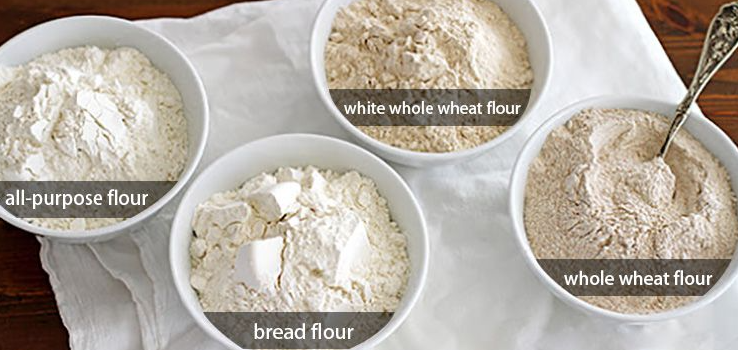
milling wheat flour type
Maize Flour Mill is used for grinding or milling of corn or maize, which consists of corn processing equipment (e.g. corn sheller, corn polishing machine, germ extractor, new type of ultra-fine maize grits machine, etc.) and general equipment for food processing (e.g. elevator, density maize de-stoning machine, flat sifter, grinder, flour washing machine).
It adopts all-dry technology to ensure that the extraction and quality of flour and grits meet or even exceed national standards.
The finished products are grade corn flour, grade corn grit, corn bran, and so on. The whole set of equipment has advanced technology, high precision, high specification, reasonable layout, low consumption, high extraction rate and good quality. The production line can be widely used in the food industry.
We also provide tailor-made corn flour milling equipment according to customers' unique needs. As one of the best manufacturers and suppliers in the flour milling field in China, we are always available to provide corn milling equipment to markets all over the world. Of course, our technical team also helps our customers design the necessary auxiliary systems for steel silos, cement silos and corn milling projects on the factory floor.

maize flour type
In the era of seeking to improve production efficiency and reduce labor costs, choosing the appropriate type of flour production line has become an important decision faced by many enterprises. A wise choice can not only significantly improve productivity, but also optimize cost structure while ensuring product quality. As a leading provider of flour production lines in the industry, PIINGLE provides you with comprehensive solutions for fully automatic and semi-automatic flour mills to meet the needs of enterprises of different scales.
Advantages of fully automated flour mills:
High efficiency: The fully automated flour mill significantly improves production efficiency and saves labor costs through highly integrated and automated production lines.
Stable quality: The automated control system accurately controls the production process, ensuring the stability and consistency of flour quality.
Easy to operate: One click start reduces operational complexity, making it easy for even inexperienced operators to manage.
Disadvantages of fully automated flour mills:
High initial investment: The introduction of fully automated equipment and systems means higher equipment and installation costs.
High technical maintenance requirements: highly dependent on the operation of automation systems, requiring a professional team for maintenance and monitoring.
Advantages of semi-automatic flour mills:
Low cost: Compared to fully automated facilities, semi automation reduces some automation equipment, resulting in relatively low initial investment.
High flexibility: suitable for small and medium-sized enterprises, and can be flexibly adjusted according to production needs.
Disadvantages of semi-automatic flour mills:
Relatively low efficiency: Compared to fully automated production lines, semi automation has a trade-off between production efficiency and labor costs.
Quality control challenge: Excessive manual intervention may affect the consistency of product quality.
At PIINGLE, we are committed to customizing the most suitable flour mill solution for every customer. Whether pursuing the ultimate efficiency of fully automated solutions or pursuing cost-effective semi automated solutions, PIINGLE can meet your needs. Let our expert team help you make the best choice, optimize your production line, and accelerate your business growth. Choose PIINGLE now to empower your flour production business.
Different application industries
Commercial flour machinery and equipment require less capital, but the profit margin is relatively small. Thus, the business of commercial flour mill is flexible and you can adjust the output as per the market demand. In addition, the whole operation is also relatively easy and simple, almost all adults can use it.
Due to the complexity of the milling process and the advanced milling machinery, it is inevitable that the investment in large-scale industrial flour mill projects is huge. However, the profit isstill good in most cases because there is a high demand for wheat flour all over the world, especially in some regions such as India, Egypt, Algeria, Italy, Brazil and so on. Large industrial flour mills can be automated and continuous. Flour production, from raw material to packaged flour.
Scale of production
Generally speaking, there are two kinds of flour milling enterprises: small-scale and large-scale. When choosing between small-scale or large-scale, your specific conditions should be fully considered. Here, we will analyze small-scale flour mill and large-scale flour mills for your consideration.
With a small footprint and low investment, small flour mills can process a wide range of crops and thus have been a great help to many farmers or small businessmen for commercial use or home use. Firstly, small flour mill machinery requires a small amount of capital, but the profit margin is relatively small.
It works well in two modes, one is to collect a certain amount of milled grains and the other is to produce flour mills. Thus, small-scale flour mill business is flexible and you can adjust your production according to the market demand. Moreover, the entire operation is relatively easy and simple, and hence almost all adults can use it.
Reduced investment. The investment per unit capacity of a new small and medium-scale flour production line is 1/3~3/4 lower than that of a large or extra-large-scale flour production line. The investment is lower if you repair and renovate the old plant and old equipment. Most of the small and medium-sized flour mills are gradually developed from small units and small factories
The sales targets of small and medium-sized flour mills are mostly foodstuffs, workshops, and sales retail outlets in villages and neighboring cities. Most of the products are sold directly and delivery service is provided. This reduces the intermediate links of sales and has a high profit margin.
PINGLE 30-60TPD small scale flour milling plant
Due to the complexity of the flour milling process and the advanced flour milling machinery, large-scale flour mill projects inevitably require large investments. However, in most cases, the profit is considerable, as there is a high demand for wheat flour all over the world, especially in some regions such as India, Egypt, Algeria, Italy, Brazil, etc.
Large flour mills allow for automated and continuous flour production from raw material to packaged flour.
This multi-layer wheat flour mill is ideal for large-scale wheat flour production. Its advanced technology facilitates the production of various grades of flour as well as specialty wheat flour, processes that require simple and flexible adjustments to its complex cleaning and milling components.
Wheat flour mills of 200-500 tons/day are of large-scale production, usually with multi-story concrete building structures, and the main milling machine is a fully enclosed, low noise, low energy consumption pneumatic flour mill, equipped with ped and PLC control system.
The whole set of equipment is durable, and easy to operate and maintain, with high productivity and flour yield. Therefore, this wheat flour mill can be used to produce different grades of wheat flour as well as special flour.
Large mills have complex processes to control the grades so that multiple grades of flour can be produced. Other smaller mills are usually part of the vertical integration of larger manufacturing processes.
200-500TPD Large-scale Production Flour Mills
PINGLE is a reliable flour equipment manufacturer integrating scientific research, manufacturing, and trading, and has long been committed to the research, development and application of new technology in flour machinery. We are strong enough to provide you with a full process service to help you turn your investment vision into a realistic and profitable flour mill business. Contact us today for more details!
Some of the ideal wheat flour mills enable operators to minimise operating costs and ensure that the required quality of wheat is produced, thus guaranteeing optimum results.
| Maize Flour Milling Plant | Wheat Flour Milling Plant |
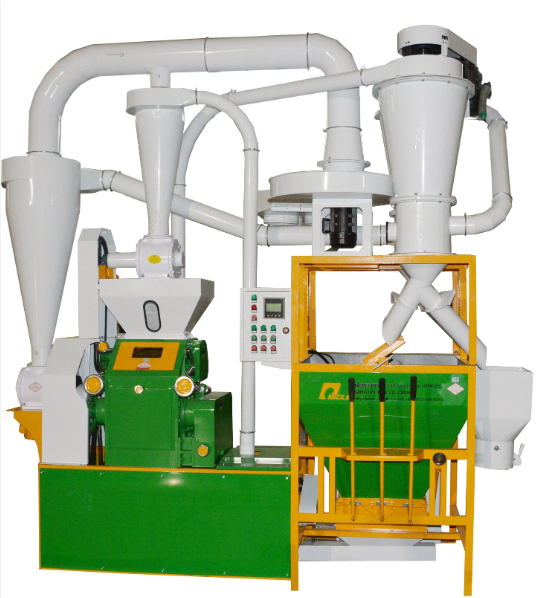 | 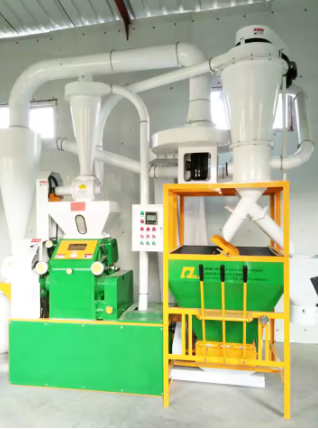 |
10TPD Small Maize Flour Milling Line
| 30~60 tonnes/day wheat flour mills Small scale flour mills are designed to be beautiful and simple, yet highly efficient. Small footprint, low noise, no wearing parts. Low investment cost, high profit, suitable for all occasions Markets: small markets, supermarkets, country markets, Catering, restaurants, enterprises and school canteens, or family: can be processed for self-use flour milling machine It can be used to process wheat, corn, rice, millet and other grains to ensure high flour yield. Low temperature and low speed milling imitates the stone milling process, which really retains all the nutrients of the grains and ensures a delicate and sweet taste. Low power consumption and small size flexible mobility also increase its popularity The structure of the small flour milling unit is relatively simple. |
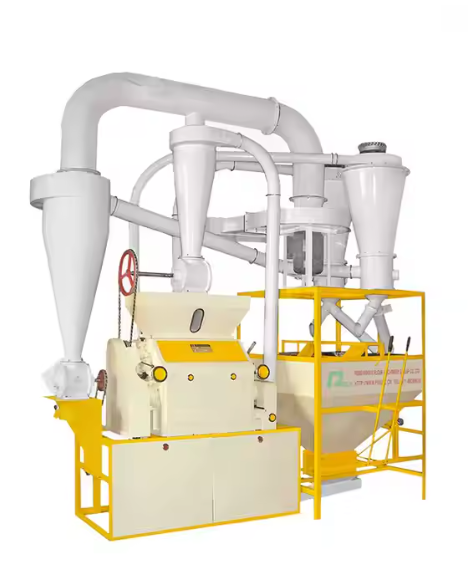 | 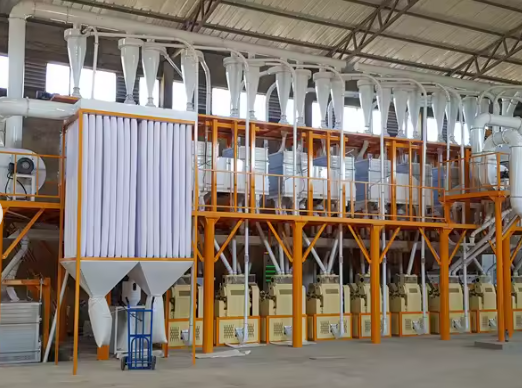 |
20TPD Maize Flour&Grints Milling Unit | 60~150 tonnes/day wheat flour mills |
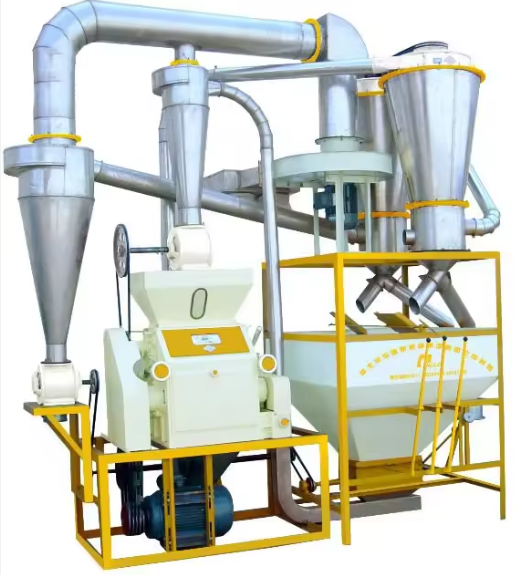 | 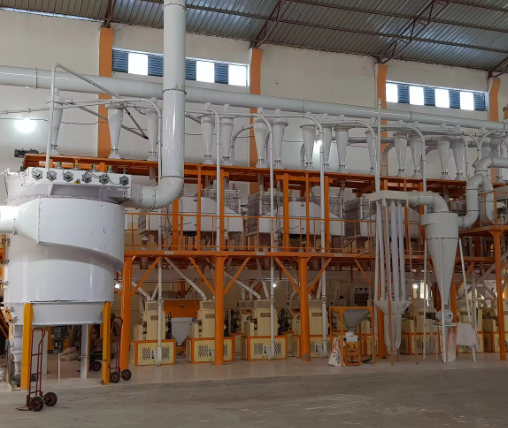 |
30TPD Maize Flour Plant | 150~200 tonnes/day wheat flour mills |
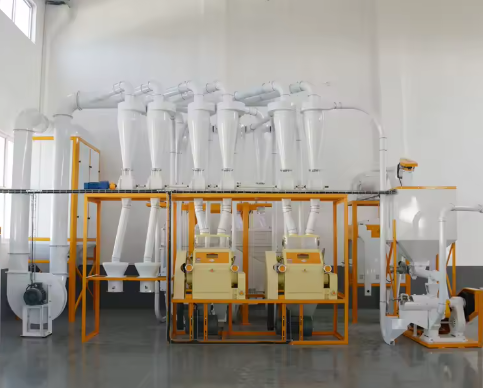 | 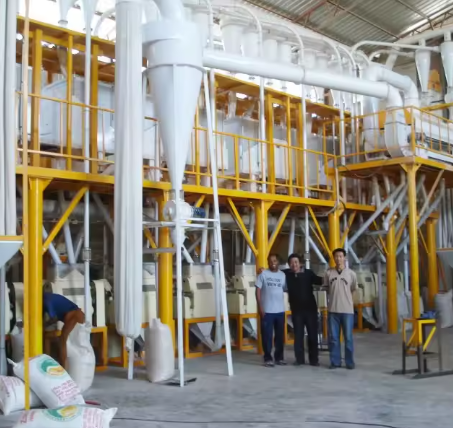 |
100TPD Maize Flour Mill | 300~1000 tonnes/day wheat flour mills |
Send an inquiry now for project cost, process design, and equipment layout details!
The diversity of wheat products in our markets is a clear indication of the lucrative nature of the wheat industry. However, this does not mean that the field wheat flour industry is not competitive. As a result, wheat flour farming does not always guarantee the best results. So what can a wheat flour milling operator or investor do to ensure the best returns? Most of us would rightly rule out the production of quality wheat as the only way to achieve the above. The reality is that in addition to producing quality wheat flour, millers must also consider other important factors.
One of these key factors is the minimization of the operating and production costs of the flour mill, which can be achieved by establishing the ideal wheat flour mill. Mills must consider flour milling equipment that can operate at maximum capacity while consuming relatively low power, as power requirements account for the highest percentage of operating costs in a milling operation. They should also consider fully automated flour mills that are low maintenance, easy to operate, and have low labor.
The cost of a flour mill varies greatly due to different production capacities. If you are setting up a small mill flour mill, the cost will be much cheaper than a medium or large scale flour mill. Setting up a flour mill may require a lot of money, so if you don't have enough money but don't want to miss out on a profitable endeavor, you can search for the help of a bank loan or just to find a reliable partner who is also keen on the flour milling business.
PINGLE MACHINERY is a reliable and large-scale manufacturer in China, and we can make sure that our customers get all the equipment at factory-direct supply prices. It is very small for our small flour milling equipment. The fully automatic flour mill plant price ranges from US$1,600 to US$4,000. However, the prices are for reference only, please contact us for exact automatic flour mill plant price!
Although there are many flour mills in the market, the high demand for various types of flour makes it still profitable to start a flour milling business by setting up a small or medium-sized flour mill.
Many people are interested in starting a flour mill business. However, they are ignorant about the detailed steps and prospective costs of setting up a flour mill plant. They are also curious to know how much money they can earn per year like a small scale flour mill. Here at PINGLE Machinery, we provide the information you may need such as Wheat Flour Mill Business Plan.
It mainly consists of two segments: wheat cleaning and flour milling. The detailed flour milling process is as follows
In the first stage, the wheat kernels are thoroughly washed to remove any foreign material that may be present and may vary with the product (such as weed seeds, stones or dust particles) or may damage the machine used. The washed material is then sucked up by means of an extractor to dry up any material which weighs less than the wheat kernels and which may have escaped the first cleaning stage.
The wheat is milled and arranged according to its protein content. It is ground through two large metal rolls (called crusher rolls) in the flour milling plant. The crusher rolls open the wheat kernel and separate the outer layer from the inner layer. The grinding stage of the flour mill production process produces three layers of material:
These pieces are then sifted and ground again using the same process to produce several types of flour grades.
The flour mill production process is designed to ensure that the best possible flour is produced. Each process is carried out by qualified teams who ensure a high level of hygiene measures are taken.

flour milling processing
Setting up a flour mill to produce wheat flour, maize flour, rice flour or other grain flour is very easy if you know how to go about it. This is because there are a lot of people who are not familiar with the appropriate flour mill, especially in the field of wheat flour mills. The good thing about a wheat flour mill is that it is easier to handle and maintain than other types of flour mills
There are some important things you need to consider when it comes to wheat flour mill setup. One of them is your expected production capacity, which is a key factor in determining which type of flour mill you should buy. This is because some wheat flour mills are very large while others are very small. In order for you to get the best type of machine, you have to find one that suits your needs.
Another important thing to consider in the wheat flour mill setup is the design. This is very important because you do not want to buy a machine that does not suit your needs. It is important to find out what features the machine has and what features you want. It is also a good idea to consider the operating system of the machine. This will help you determine how the machine works and runs.
Getting Financial Support
Any business needs financial support before it starts. How much does it cost to buy a flour mill ? Is it necessary to take a loan or invest all the money in this business. For estimating the amount, it is better to have a better understanding of the local market as well as the global market where the flour mill business is profitable
Finding the right flour mill location
The right location of the mill is very important for the flour milling business. The right location of the mill should be easily accessible for the raw materials and the final packaged flour to be transported and shipped. Once the location is determined, it is time to get out the footprint of the flour milling plant . Generally, a complete mill layout should include a raw material storage area, a flour milling machine area, and a flour packing area.
Obtaining a flour milling licence
Obtaining a government licence or registering the mill with local authorities is also important for the success of a flour milling business. Ensuring that policies and flour production processes comply with local rules and regulations is a basic requirement for a flour mill.
Purchasing a flour mill
Once the above conditions are in place, it is time to consider how and where to obtain flour milling machinery. The choice of flour mill is closely related to capacity, investment costs, flour milling process, raw materials, etc. Therefore, it is not something that can be done overnight. Taking the time to choose the most reliable flour machinery supplier can help avoid many unexpected problems in the installation and operation of a flour mill, and reduce the cost of machinery purchases.
Operator training flour mill workers and safety education
For most flour mills, there should be more than one operator or worker producing flour. Once a flour mill is in operation, it is important that workers and operators are systematically trained and educated on safety. Not only do they need to be proficient with the equipment and machinery, but they also need to know how to add flour ingredients. Most four-mill machinery suppliers offer their customers training programmes and courses to help them get into the flour industry quickly and avoid many of the typical operational mistakes.
Developing a marketing strategy for your flour milling business
How to get the final flour produced to the direct customers is also a challenge for flour mill investors. If the local flour market has a low level of competition,then don't worry, the final flour product will sell very well. Some markets such as Nigeria, India, Pakistan, Uganda, Chile, Australia, Algeria, Ethiopia, etc. are very popular for flour milling business due to high demand and low competition.
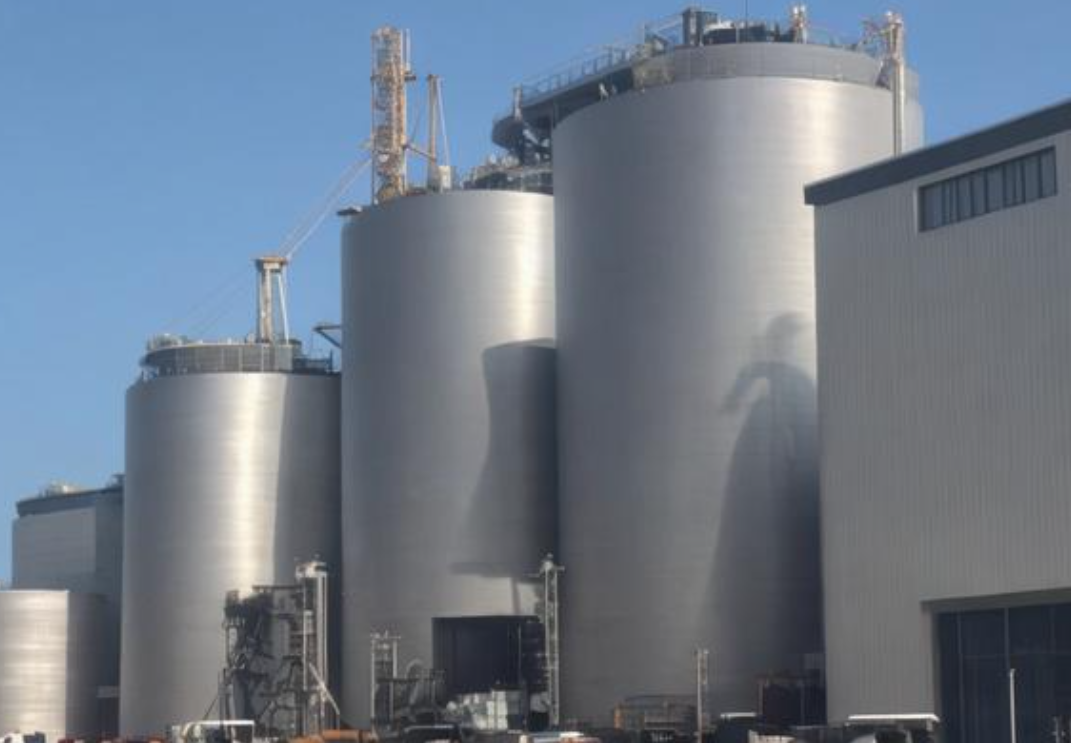
flour mill plant outlook
When you are planning to start a flour mill business by building a flour mill, you can refer to the above tips and steps for a complete and workable flour mill business plan.PINGLE Machinery can provide customized flour mill business plan to start a flour mill business easily. If you are still confused, please contact us for more details as we have built many flour mill projects around the world. We believe that some of our experience is what you want!
Many customers often do not know how to choose when choosing flour mill machinery in the face of many flour mill manufacturers. Some of these irregular manufacturers, because the quality of flour machinery is not high enough, so the price is relatively low, and the market order is chaotic, leading to the purchase of flour machinery users confused and entangled, do not know how to identify between these manufacturers and how to buy them. Here we give some advice to friends who want to buy flour machinery, hope it can help you buy the right flour machinery at low cost.
When buying flour machinery, users should not only consider its price, but also consider the various costs during the use of the machinery as well as the consumption of the machinery in the long run. Due to the poor quality and functionality of cheap flour machinery, the consumption of raw materials may increase during the use of the machinery after purchase, energy consumption is higher, and maintenance costs are relatively high, resulting in a shorter lifespan of the flour machinery. This set of factors may lead to a significant increase in the operating costs of the flour machinery throughout its life cycle.
In summary, the result of purchasing such flour machinery is uneconomic. Therefore, when purchasing flour machinery, users should not only be concerned about how much they will invest at one time, but must consider the economy and long-term comprehensiveness of the machinery. Under the premise of meeting the technical requirements, quality requirements and functional requirements of flour machinery, try to choose cheap flour machinery, and also consider its freight and other cost factors. In short, it is wise to choose economic flour machinery.

PINGLE is a professional manufacturer specializing in grain processing project manufacturing and installation with more than 20 years of experience. The main products include flour mill plants, wheat flour milling machines, and maize milling machines. Our products have been exported to 32 countries and regions such as Egypt, Ethiopia, India, Vietnam, Brazil etc. The International Trade Division sets up a sales dep., technical engineer dep., after-sales service dep. and documentation and logistical dep., which can manage engineer design, installation, and service with professional staff.
1) High efficiency cleaning equipment, including aspiration seperator, vibro sparator,destoner,dempener,disc cylinder selector.
2)Advanced flour milling equipment, including pneumatic control roller mill, electric control roller mill, square plansifter, purifier.
3) High precision flour packing machine from 5kg to 50kg.
Roller Processing Service
| flour mill plant project | video |
| Cameroon 200TPD Wheat Milling Turnkey Project | https://youtu.be/NGVbyaP3HJc?si=_UZcEa6be8HKl_qB |
| Russia 180TPD Wheat Milling Turnkey Project | https://youtu.be/7hQkQToWpDA?si=VUZwcRaVDEg4yeTu |
| Tajikistan 600TPD Wheat Milling Plant | https://youtu.be/vpNIQTdhuqE?si=Sqi0v4oB06Kf3mFt |
| Ethiopia 220TPD Wheat Milling Turnkey Project | https://youtu.be/SUzm8TsWhGg?si=kjmB8V0wkyZVAIf0 |
| Uganda 160TPD Wheat Milling Plant | https://youtu.be/IXmLQWODuOY?si=TE2AtLZxJxe6a8yW |
FAQ of Flour Mill Plant
What Is A Flour Mill Plant?
A flour mill plant is a facility where raw grains are processed into flour. It involves cleaning, conditioning, grinding, and packaging of grains such as wheat, corn, rice, etc. The end product, flour, is used for making various food items like bread, pasta, cakes, and more.
How To Open A Flour Mill Plant?
Opening a flour mill plant involves several steps: conducting market research, securing a location, obtaining necessary permits and licenses, purchasing equipment, sourcing quality grains, and hiring skilled personnel. It's crucial to also have a business plan outlining your operation, marketing, and financial strategies.
What Is The Cost Of Setting Up Flour Mill Plant?
The cost of setting up a flour mill plant can vary greatly depending on the capacity, location, equipment quality, and size of the operation. It can range from a few thousand dollars for a small-scale operation to several million for a large, fully automated plant. Detailed budget planning and market study are essential for a realistic cost assessment.
How To Design My Flour Milling Plant?
Designing a flour milling plant requires considering the production capacity, workflow optimization, safety regulations, and space utilization. It's advisable to consult with industry experts or hire professionals who specialize in plant design to ensure efficiency and compliance with health standards.
Who Are The Leading Flour Mill Plant Manufacturers?
Leading flour mill plant manufacturers include Bühler AG, Ocrim S.p.A., Alapala, GEA Group, and Andritz AG. These companies offer a range of equipment and services for setting up and maintaining flour mills worldwide.
How To Install A Flour Mill?
Installing a flour mill involves assembling the machinery according to the manufacturer's instructions, connecting utilities (electricity, water, etc.), and conducting initial testing. It's often beneficial to have the installation supervised by a representative from the manufacturing company or a professional with experience in mill installation.
How Many Types Are There In Flour?
There are several types of flour, including but not limited to whole wheat flour, white flour, all-purpose flour, bread flour, pastry flour, and specialty flours like rye, barley, and oat flour. The type depends on the grain used and the processing method.
Where To Buy Quality Grain For Flour Mill?
Quality grains for a flour mill can be purchased from reputable suppliers, agricultural cooperatives, and directly from farmers. Ensure the grains meet your quality specifications and are sourced sustainably to provide a consistent product to your customers.
What Is The Prospect Of The Flour Industry Market?
The prospect of the flour industry market remains strong, driven by growing demand for various flour-based products, increasing population, and consumer preference for healthy and organic options. Innovation and diversification in flour products also contribute to the industry's growth potential.
What Qualifications And Standards Are Required To Open A Flour Mill
Qualifications and standards to open a flour mill include compliance with local health and safety regulations, food production standards, and environmental regulations. Obtaining certifications like ISO and HACCP can also be beneficial for operational excellence and market credibility.
What Is The Milling Process From Grains To Flour
The milling process involves several steps: cleaning the grains, conditioning (moi
Copyright © Hebei Pingle Grain Technology Intelligent Equipment Co.ltd. All Rights Reserved | Sitemap | Technical Support: 